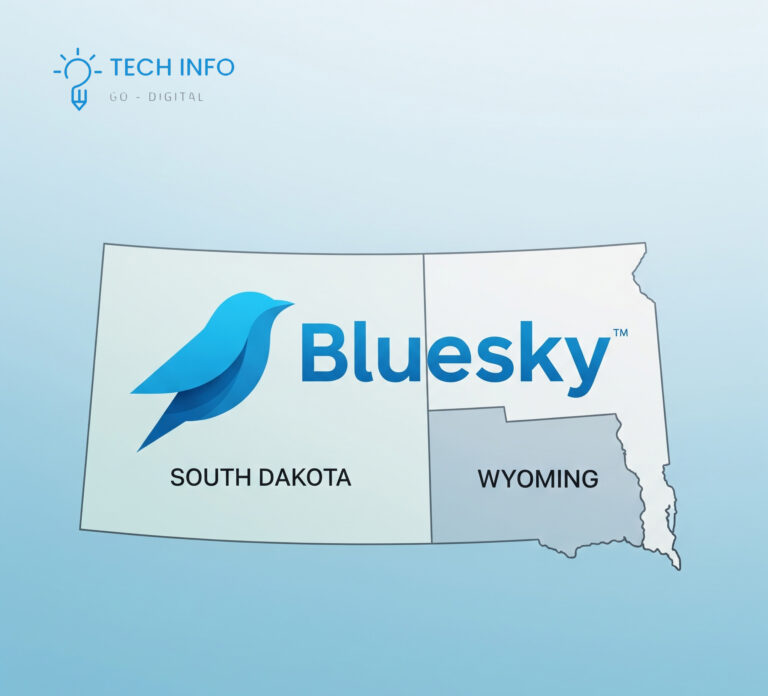Table of Contents
ToggleNavigating the Digital Frontier: Bluesky’s Commitment to Compliance and Safety in the American Heartland
The digital landscape is not a lawless frontier. It is a evolving space where innovation must responsibly coexist with regulation, especially when it comes to protecting the most vulnerable users online. Recently, Bluesky made headlines with its strategic decision to exit the Mississippi market, a move directly tied to the state’s newly enacted age-verification laws. This decision was not made lightly, but rather as a precise, compliance-driven action. Now, as the dust settles, Bluesky has announced its next steps: a firm commitment to implementing robust age-verification systems to comply with similar laws in South Dakota and Wyoming.
This post will explore what this means for users, the technology behind the policy, and why Bluesky is taking this deliberate path through the complex patchwork of state-level internet legislation.
The Mississippi Precedent: A Lesson in Legal Scrutiny
To understand the future, we must first look at the recent past. Mississippi joined a growing number of states passing laws that require social media companies to verify the age of all their users and, more critically, obtain verifiable parental consent for any user under the age of 18.
For a rapidly scaling platform like Bluesky, built on a foundation of open protocols and decentralized social networking, the immediate and technically flawless implementation of such a system presented a significant challenge. The law’s stringent requirements and potential penalties made a rushed, half-measure compliance strategy a legal non-starter. Therefore, the difficult but prudent decision was made to temporarily suspend operations in Mississippi to avoid operating in violation of the law while engineers and policy experts developed a durable solution.
This wasn’t an exit in defeat; it was a strategic pause for compliance.
The Commitment: South Dakota and Wyoming Are Different
Learning from the Mississippi experience, Bluesky is proactively addressing its operational status in South Dakota and Wyoming, two states with comparable age-verification mandates. The message is clear: Bluesky will comply.
This commitment signals a crucial evolution in the company’s approach. Instead of reactive measures, Bluesky is investing in a scalable, privacy-centric age-verification infrastructure that can be adapted to meet specific state requirements without necessitating a full withdrawal. This demonstrates a mature balance between the company’s philosophical ideals and the practical realities of operating a global service within a framework of local laws.
How Will Age Verification Work on Bluesky?
The immediate question on every user’s mind is: “What will I have to do?” Bluesky’s approach is likely to hinge on a multi-layered verification system designed to balance security with user privacy.
- Self-Declaration: Upon signing up in a regulated state, new users will be required to self-declare their age. This is the first and most common gate.
- Age-Estimation Technology: For users who declare they are over 18, Bluesky may employ sophisticated AI-driven age-estimation technology. This involves analyzing a user-uploaded photo (which is immediately deleted after analysis) to estimate age based on facial features. This method is non-intrusive and avoids storing highly sensitive government documents.
- Verified Parental Consent: For users who are identified as minors, or who self-declare as under 18, the platform will require verifiable parental consent. This process typically involves:
- Submitting a parent or guardian’s email address or phone number for contact.
- Requiring the parent to complete a consent form, often needing to verify their own identity via a government-issued ID or a credit card check.
- Implementing stricter default privacy and safety settings for minor accounts, limiting messaging, and curating algorithmic feeds.
Bluesky has emphasized that any ID-based verification will be handled through trusted, third-party vendors specializing in digital identity. This means Bluesky itself would not store your driver’s license data, mitigating the risk of data breaches involving your most sensitive information.
The Bigger Picture: Privacy, Decentralization, and a Patchwork Problem
Bluesky’s situation highlights a monumental challenge facing the entire tech industry: the rise of a 50-state patchwork of internet regulation. Laws in Texas, Arkansas, Utah, California, and others all have different, and sometimes conflicting, requirements for age verification, data privacy, and content moderation.
For a platform founded on principles of decentralization and user sovereignty, these laws present a philosophical tension. How does a service built on giving users more control adapt to laws that require centralized control mechanisms like age gates?
Bluesky’s answer appears to be through technical innovation and transparent communication. By building compliance tools that are as privacy-preserving as possible and by being clear with users about why these steps are necessary, the platform aims to uphold its core values even within new legal constraints. The goal isn’t to collect data, but to create a safer environment that allows the platform to operate and thrive responsibly.
What This Means for You
If you are a current or prospective Bluesky user in South Dakota or Wyoming:
- New users should be prepared to undergo an age-verification process during sign-up starting on the law’s effective date.
- Existing users will likely be prompted to verify their age through an in-app notification to maintain full access to the platform.
- Privacy-Conscious Users can take solace in Bluesky’s commitment to using third-party verification, meaning your personal ID data is less likely to be stored on a social media server.
Looking Ahead: A Model for Responsible Growth?
Bluesky’s journey through the maze of state-age verification laws is being closely watched. Its decision to comply in South Dakota and Wyoming, after the strategic pause in Mississippi, sets a precedent. It shows that a new-wave social media company can be agile and principled while still acknowledging the jurisdiction of lawmakers tasked with protecting citizens.
The ultimate test will be in the execution. Can Bluesky implement a system that is seamless, secure, and truly effective at keeping minors safe without alienating its user base or compromising its foundational beliefs? If successful, Bluesky won’t just be complying with laws in South Dakota and Wyoming; it might just be charting a responsible course for the entire next generation of social platforms.





